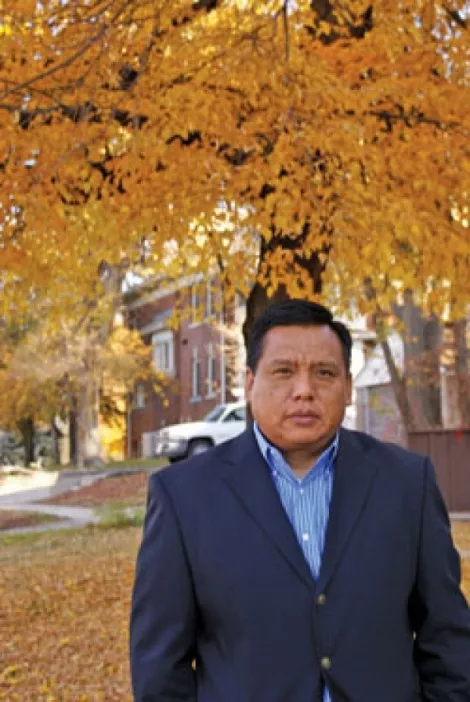
As Utah law-enforcement agencies fight the growth of foreign drug cartels, they may find themselves doing double duty if the 2008 state Legislature passes a controversial law giving law officers immigration-enforcement duties.
“Meth has always been a significant problem,” says Salt Lake City Police Chief Chris Burbank. “Most of the meth we are now seeing is from Mexico. Since we’ve had the crackdown on precursor chemicals, it’s been cheaper for them to bring it in,” says Burbank.
He’s referring to a recent change in the law that severely limited the ability to buy pseudo ephedrine, a key ingredient of methamphetamine. But the resulting growth of Mexican transnational cartels pose a challenge for law officers—one that might not be easing as state Rep. Glenn Donnelson, R-North Ogden, tries to reintroduce legislation that would give law officers limited immigration-enforcement powers.
Burbank says, at best, the law would have “minimal impact” on the drug and crime problem in Utah. At worst, it could go beyond racial profiling. Which individuals, Burbank wonders, would be scrutinized? “You can’t have immigration-enforcement action against individuals that just look like Mexican drug dealers. How do you ask that question? This [legislation] sends the law backwards. Immigration and customs needs more support, but I firmly believe that giving that power to local law enforcement is not the answer.”
Donnelson still believes that it is.
“This would just give police officers a new tool,” he says. “It would allow them [law enforcement] in the course of their routine duties to ask people for their ID. If they determine there is no documentation, [police] can call ICE (Immigration and Customs Enforcement), and they can detain them.”
Donnelson is undeterred by criticism that cops as immigration enforcers would frighten undocumented immigrants from seeking police help or that information on drug gangs from Mexico would dry up. “They’re not cooperating now [with law enforcement],” he says. “There’s already fear of being deported and of retribution within their own community.”
Rep. Mark Wheatley, D-Murray, former member of the Governor’s Advisory Council on Hispanic Affairs, is skeptical of Donnelson’s claim that Latinos don’t collaborate with law enforcement. “He doesn’t know what he’s talking about,” says Wheatley. “The [Latino] community has spoken out before, but they won’t be comfortable going to the police if they fear being cornered and deported. It would [strain relations]. The Latino community here is very large … and I don’t know any one of them who would support this.”
Wheatley also believes the bill is unnecessary. “I’ve talked to a lot of police officers randomly who just don’t think it’s needed and don’t want the extra work.”
Not all agree, however. Sgt. Jeff Nigbur, spokesman for the Utah Department of Public Safety, believes immigration enforcement power could be a valuable tool for highway patrol troopers who often detain undocumented immigrants suspected of drug trafficking. They are currently helpless in using ICE resources to aid in their investigation. “But we certainly wouldn’t stop people just to stop people. We’re not going to actively use this legislation to stop and check people’s IDs,” Nigbur says.
Donnelson is bent on toughening immigration laws in Utah, which he calls a “sanctuary state.” He believes undocumented immigrants flock here because they consider the state to be lenient on immigration. But with immigration and the law wrapped up together, the drug gang issue may be co-opted by political maneuvering. While Donnelson contends the law guides his actions, the perceived effect of his bill in the Latino community stokes indignation from activist Tony Yapias, director of Proyecto Latino de Utah.
Yapias scoffs at Donnelson’s “sanctuary state” theory. “Wake up and smell the hot chocolate,” says Yapias. “Utah is becoming an ethnically diverse place. [Donnelson] just wants to keep the state white. Why doesn’t he just say that? Then we would know where he stands.”